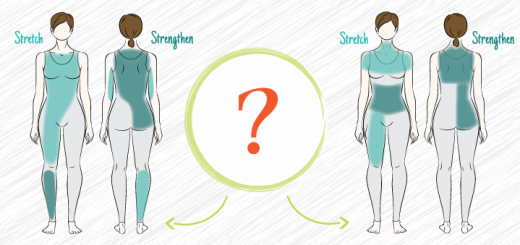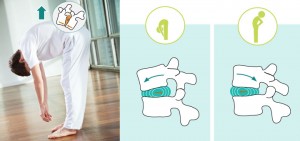Why your mind races before bed and what you can do about it
0In the course of your day, how often do you close your eyes and disconnect from the external bombardment of information to check in on what’s going on inside? If you are a yoga teacher, you are more likely to do it once or twice during the day, but for most folks the first time their attention turns inward is when their head hits the pillow at bedtime. According to Matthew Walker, PhD “There is no worse time to consciously do this. Little wonder that sleep becomes nearly impossible to initiate or maintain when the spinning cogs of our emotional minds start churning, anxiously worrying about things we did today, things that we forgot to do, things that we must face in the coming days, and even those far in the future. That is no kind of invitation for beckoning the calm brainwaves of sleep into your brain, peacefully allowing you to drift off into a full night of restful slumber.”(1)
If bedtime is the first time you turn your attention inward, it’s no wonder that your mind races before bed trying to take stock of what’s been happening and what still needs to happen. And since there is always unfinished business and plenty to worry about in the past and in the future, all those thoughts tend to surface right before bed, revving up your sympathetic nervous system (“fight-or-flight” mode). There are three main consequences of sympathetic activation that mess up your sleep:
1. Raised metabolic rate leads to an increase in core body temperature. As we discussed earlier, from the evolutionary standpoint, a drop in core body temperature indicates dusk and prepares your body for sleep. If your temperature remains high (from sympathetic activation, recent exercise or other factors), your body will have hard time preparing for sleep.
2. Higher levels of hormones (cortisol, adrenaline and noradrenaline) increase the heart rate. Elevated cardiac activity makes it more difficult to go to sleep.
3. Brain activity is altered, specifically the emotion-, memory-, and alertness-related regions of the brain. When your sympathetic nervous system is activated, your emotional center (amygdala) remains active, your memory-recollection center (hypocampus) keeps going, and the sensory gate of the brain (thalamus) remains vigilant instead of powering down. According to Matthew Walker, PhD “a direct and causal connection exists between the fight-or-flight branch of the nervous system and all of these emotion-, memory-, and alertness-related regions of the brain. The bidirectional line of communication between the body and brain amounts to a vicious, recurring cycle that fuels their thwarting of sleep.”(1)
As a result of this sympathetic activation it takes longer for you to fall asleep, sleep becomes more shallow and fragmented, you get less rest and do not feel refreshed the next morning. All of this makes it harder to function during the day.
The key to dealing with a racing mind before bed then is to power down your sympathetic nervous system. There are several ways you can approach it:
1. Take time during the day to close your eyes, breathe and check in. That way you don’t save all that built-up stress till the end of the day.
2. Take steps during the day to switch from “fight-or-flight” to “rest-and-digest” mode (parasympathetic activation) by taking breaks, giving yourself little treats during the day, taking time to breathe, hang out with friends, doing what you love.
3. When you go to bed at night, try not to get embroiled in emotions, recollections or sensory feedback. All those brain centers need to power down to ensure restful sleep. The best way to avoid it is to drop your attention into the body (we will talk more about it next time).
4. The most important one – take time to RESOLVE YOUR DAY BEFORE YOU GO TO BED. It means different things for different people. Do you need to vent to someone about your day? Journal? Make to-do lists? Set up your work space for tomorrow? Acknowledge the work you’ve done? Try different things and see what helps you feel like the day is complete.
Movement practice can also help because it both drops your attention into your body and helps to switch off the sympathetic nervous system. But it has to be a specific yoga practice that doesn’t make you more wired. Which elements should we choose? We will talk about it next time. Tune in!
References
- Why do we sleep: Unlocking the Power of Sleep and Dreams by Matthew Walker




















